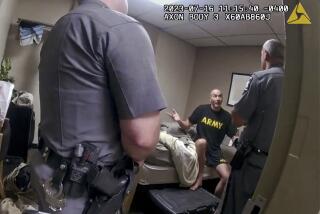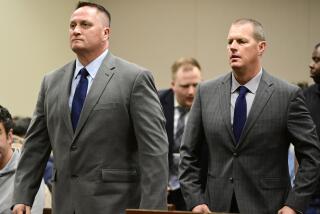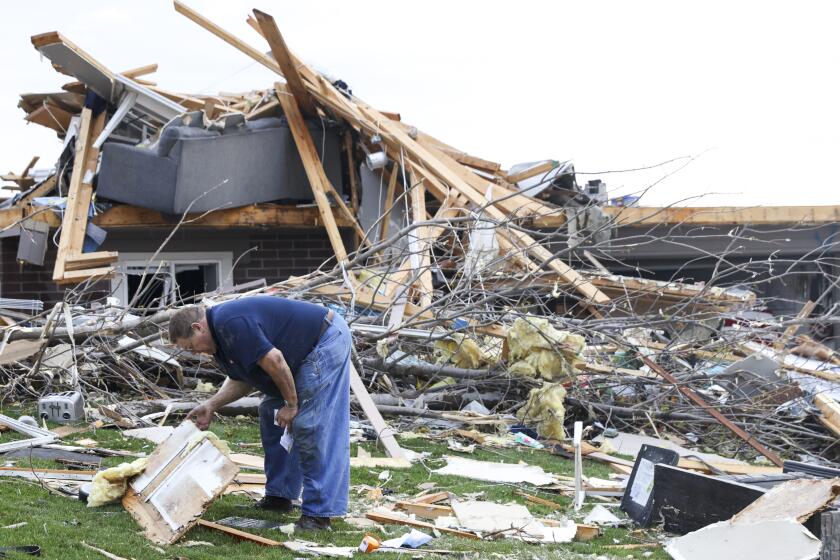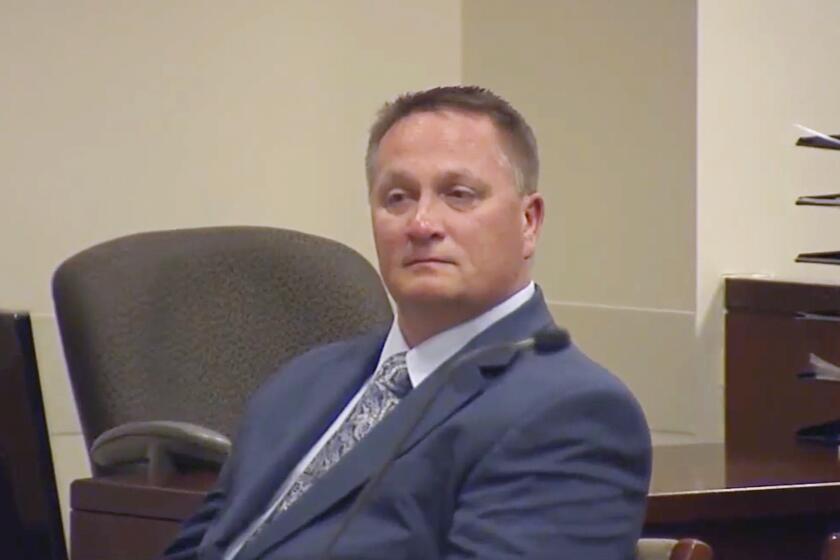Is Robert Bales competent to stand trial? Army prepares to ask
U.S. Army prosecutors have moved to open a legal review to determine whether Staff Sgt. Robert Bales is mentally competent to stand trial on charges of murdering 17 unarmed civilians in southern Afghanistan.
Attorney John Henry Browne, who is representing Bales in the case, said he was notified that the Army is moving to start a sanity board hearing. During that proceeding, teams of psychiatrists and neurologists will prepare findings on Bales’ mental health at the time of the attacks and attempt to determine whether issues such as combat stress or a prior brain injury could have rendered him not responsible for his actions.
Browne said it’s too early to determine whether the defense will try to argue that Bales was not mentally competent. Under military law, the burden of winning an acquittal based on lack of mental responsibility is a heavy one: The defense would have to prove by clear and convincing evidence that Bales had a “severe” mental disease or defect that made him unable to appreciate the wrongfulness of an act.
Successful mental health defenses are extremely rare in military courts.
“Let’s see if they can prove a case before we answer that question,” Browne said.
He said the defense team that he dispatched to Afghanistan to begin preparing a case has run into obstacles, apparently put up by U.S. prosecutors, in trying to interview witnesses to the killings in a remote region of Kandahar province near the small special operations base where Bales was based.
“People on our staff in Afghanistan went to the hospital where there supposedly were eyewitnesses to this … and we were told by the prosecutors to come back the next day, which is fine. We went back the next day, and they’d all been released from the hospital and they’d all been scattered throughout Afghanistan. That was a violation of the trust we had in the prosecutors,” Browne said.
“We’ve been misled greatly…. They were promised to be there, and they were not,” he said, adding that there isn’t much hope of finding the witnesses now. “People just disappear into the Afghan countryside.”
Browne apparently felt he was forced to hold a news conference to air his displeasure, reflecting one of the realities of military law. Prosecutors aren’t required to provide defense attorneys with information about witnesses and evidence until shortly before the hearing. At that hearing, as yet unscheduled in Bales’ case, a military judge decides whether there is enough evidence to hold a full court-martial.
Browne said he had been under the impression that military authorities intended to cooperate in the defense’s attempts to get a head start on what promises to be a complex and high-stakes case.
Testimony from the villagers is potentially crucial in light of statements some have made to journalists and Afghan investigators that several other U.S. soldiers, and U.S. helicopters, were present during the attacks.
“I’ve heard that report, and that’s another thing. I’m really curious as to why the government wouldn’t allow us to access these witnesses, because then I would answer your question,” Browne said.
But he professed skepticism about reports that other soldiers were present. “From what I know as Sgt. Bales’ lawyer, I don’t believe that’s the case,” he said.
U.S. officials have said villagers may have mistaken the teams of soldiers who went out looking for Bales as participants in the shootings.
Browne did appear to confirm reports that Bales is thought by prosecutors to have made two separate forays out of the U.S. base that night, first attacking one village, and then returning briefly to the base before setting out for the other.
“I’m very, very surprised by this supposedly being new information,” Browne said in response to a question about whether Bales is thought to have returned to the base in the midst of the attacks. “That he supposedly went out and came back, that’s not new. That was in the original report that we got from the government a week ago.”
But he rejected other reports that Bales had been drinking with other soldiers at the base on the night of the attacks.
“As far as I know right now, there’s no evidence … that Sgt. Bales was under the influence of any alcohol that night, period,” he said.
Officials at Joint Base Lewis McChord in Washington state, where Bales was based, said late Friday that the Bales investigation is “still ongoing.”
“The prosecution will provide the defense with evidence in accordance with the Rules for Courts-Martial and the Military Rules of Evidence,” the base said in a statement. “Within these guidelines, the prosecution is and has been communicating with the defense.”
RELATED:
Who is Robert Bales? Friends, colleagues thought they knew
Wife of sergeant accused of murders: He was ‘a big kid himself’
Sgt. Robert Bales case: Military’s investigative, trial process explained
kim.murphy@latimes.com
More to Read
Start your day right
Sign up for Essential California for news, features and recommendations from the L.A. Times and beyond in your inbox six days a week.
You may occasionally receive promotional content from the Los Angeles Times.






